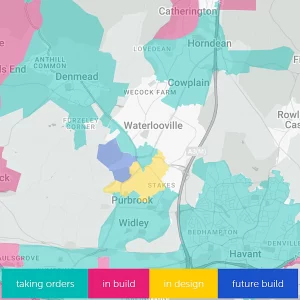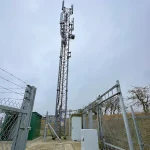Sponsored Links
Europe on Target to Meet its Digital Agenda Broadband Boosting Targets
Posted: 02nd Mar, 2011 By: MarkJ

 The European Commission (EC) claims to be "doing quite well" with progress on its Digital Agenda plan, which was formally adopted nine months ago. The agenda, among other things, seeks to bring basic broadband to all Europeans by 2013 and to ensure that, by 2020, everybody has access to faster 30Mbps+ service speeds (with 50% or more using a 100Mbps product).
The European Commission (EC) claims to be "doing quite well" with progress on its Digital Agenda plan, which was formally adopted nine months ago. The agenda, among other things, seeks to bring basic broadband to all Europeans by 2013 and to ensure that, by 2020, everybody has access to faster 30Mbps+ service speeds (with 50% or more using a 100Mbps product).The Vice-President of the EC responsible for the Digital Agenda, Neelie Kroes, confirmed in a speech to the CEBIT 2011 event in Hannover today that it aimed to complete most of the necessary actions by the end of 2013 (e.g. new legal framework). Kroes also stated that 10% of the necessary work was already done, 80% is on track and another 10% was experiencing some delay.
Neelie Kroes, VP of the EC Digital Agenda, said:
"Broadband is Europe's digital oxygen, essential for our prosperity and well-being and it is the solid foundation that can get everyone online. A million jobs may depend on successful roll out of broadband
Europe currently has some of the highest broadband penetration rates in the world. But many Europeans still do not have broadband connections. There is a great variety in access speeds and quality, and these differences can't be explained away by cultural or demographic reasons. There are market and policy problems too – and that's what we are working on."
"Broadband is Europe's digital oxygen, essential for our prosperity and well-being and it is the solid foundation that can get everyone online. A million jobs may depend on successful roll out of broadband
Europe currently has some of the highest broadband penetration rates in the world. But many Europeans still do not have broadband connections. There is a great variety in access speeds and quality, and these differences can't be explained away by cultural or demographic reasons. There are market and policy problems too – and that's what we are working on."
Kroes also pointed towards the forthcoming May 2011 release of their new Digital Agenda Scoreboard, which aims to track the progress of individual members states (e.g. UK) in implementing the wider strategy.
This is expected to show that the proportion of the population regularly using the Internet has increased by 5% in a single year to 65%, while the percentage of non-users has decreased from 30% to 26%. The Agenda itself hopes to increase regular internet use from 60% to 75% by 2015. So far they appear to be on track and well ahead of the 2015 target.
The EC also confirmed that it would hold its next primary Digital Agenda Assembly (Brussels) on 16th and 17th June 2011. This will bring Member States, EU institutions, citizens' representatives and industry together to assess progress and emerging challenges.
Search ISP News
Search ISP Listings
Search ISP Reviews
Latest UK ISP News








Cheap BIG ISPs for 100Mbps+
150,000+ Customers | View More ISPs
Cheapest ISPs for 100Mbps+
Modest Availability | View More ISPs
Latest UK ISP News
Helpful ISP Guides and Tips
Sponsored Links
The Top 15 Category Tags
- FTTP (6800)
- BT (3881)
- Politics (3075)
- Business (2767)
- Openreach (2663)
- Building Digital UK (2512)
- Mobile Broadband (2475)
- FTTC (2142)
- Statistics (2128)
- 4G (2092)
- Virgin Media (2024)
- Ofcom Regulation (1779)
- 5G (1732)
- Fibre Optic (1604)
- Wireless Internet (1595)
Sponsored
Copyright © 1999 to Present - ISPreview.co.uk - All Rights Reserved - Terms , Privacy and Cookie Policy , Links , Website Rules






























